20th Anniversary of the Crop Trust
Crop diversity is essential to ensure food security, improve nutrition and help agriculture adapt to climate change. Despite the wealth of edible plant species that local communities in many places around the world still grow and gather, only a few crops provide the bulk of the calories in most people’s daily diets. The plants that do not make that list, sometimes called underutilized or neglected, and now increasingly “opportunity crops,” hold the key to building more resilient and nutritious food systems. These crops are culturally significant, often thriving in harsh climates with little input and offering unique nutritional benefits. They can contribute to healthier lives and more sustainable livelihoods. If given the chance.
The Crop Trust, established 20 years ago, works to safeguard crop diversity and make it available for use through vital support to genebanks worldwide. Conserving the diversity of food crops, including opportunity crops, ensures that farmers, breeders and researchers have the resources needed to transform agriculture to withstand drought, disease and rising temperatures, make us healthier, protect the environment and satisfy our palate. This diversity enables us to adapt to a rapidly changing world and ensures food security for us and our grandchildren’s grandchildren.
The Food Forever Experience Des Moines celebrates the Crop Trust’s impact over the last two decades and honors two visionaries who are the laureates of the 2024 World Food Prize Award, and who both have deep connections to the Crop Trust. This event showcases how opportunity crops and diversity-driven innovation offer solutions to some of today’s most pressing global challenges – from hunger to climate change.

Meet the Speakers

Stefan Schmitz
Executive Director, Crop Trust
About Stefan
Stefan Schmitz joined the Crop Trust as Executive Director in January 2020. He previously worked as Deputy Director-General and Commissioner for the “One World – No Hunger” Initiative at the German Federal Ministry for Economic Cooperation and Development (BMZ). He also chaired the Steering Committee of the Global Agriculture and Food Security Program (GAFSP).
For more than 10 years, Stefan led the food security, agriculture and rural development work at BMZ. From 2007 until 2009 he served as senior advisor to the Secretariat of the Organization for Economic Cooperation and Development (OECD) in Paris. Before joining BMZ in 2001, Stefan held various posts in the German federal administration in the fields of geographical information systems, regional planning and international cooperation on urban issues.
He received scholarships of the McCloy Fellowship of the American Council on Germany and of the German Academic Exchange Service. After studying in Bonn and St. Andrews, he graduated from Bonn University in geography and mathematics and received a doctorate in geosciences from the Free University of Berlin in 2000.
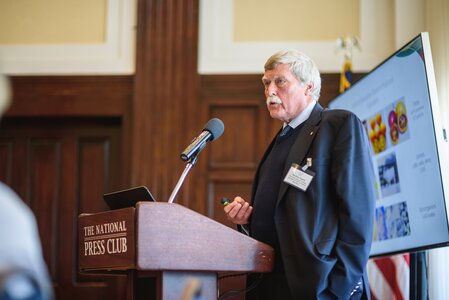
Geoffrey Hawtin, OBE
2024 World Food Prize Laureate
About Geoffrey
Dr. Geoffrey Hawtin is a 2024 World Food Prize Laureate and currently serves on the Executive Board of the Crop Trust. Dr. Hawtin led the Crop Trust as the first Interim Executive Director from 2003 to 2005.
Dr. Hawtin is an agricultural scientist and manager with expertise in agrobiodiversity, genetic resources, plant breeding, and research management. He has headed two CGIAR Centres. First, Bioversity International, at the time called the International Plant Genetic Resources Institute (IPGRI) in Rome from 1991 to 2003. And then at the Centro Internacional de Agricultura Tropical (CIAT) in Colombia from 2008 to 2009. At IPGRI, he was instrumental in launching the Crop Trust. He also served as Director of the Agriculture, Food and Nutrition Sciences Division of the International Development Research Center in Canada, and was Deputy Director General of the International Centre for Agricultural Research in the Dry Areas (ICARDA) in Syria.
Dr. Hawtin has served on several Boards of Trustees, including at the Royal Botanic Gardens in the UK and Bioversity International. He has chaired the Boards of the Tropical Agricultural Research and Higher Education Center (CATIE) in Costa Rica, CIAT in Colombia, and the Alliance of Bioversity and CIAT, also in Colombia.
He has MA and Ph.D. degrees from Cambridge University and is a “correspondant étranger” of the Académie d’Agriculture of France. In 2017 he was awarded an OBE by the UK’s Queen Elizabeth II for “services to global agrobiodiversity conservation, subsistence livelihood enhancement and sustainable food programmes”.

Paul Newnham
CEO SDG2 Advocacy Hub
About Paul
Paul is a strategic innovator and executive leader with twenty five [25]+ years of expertise managing complex stakeholder relationships, designing campaign strategies, and extensive knowledge of the not-for-profit sector. He possesses strong business acumen, exceptional advocacy skills, and the ability to build deeply engaging relationships to influence decision makers, improve practices, drive change, and deliver impactful solutions to complex problems alongside communities around the world.
Mr. Newnham founded the SDG2 Advocacy Hub in 2016, a secretariat convened to connect NGOs, advocacy groups, civil society, private sector, and United Nations agencies around Sustainable Development Goal 2: Zero Hunger. Within the Hub’s ecosystem, Paul coordinates the Chefs’ Manifesto network, Beans is How campaign, Good Food for All, and Hungry for Action – all projects and campaigns designed to positively transform food systems. Paul is the host of the podcast Future Fork, and is a highly skilled speaker, moderator, and innovative communicator of complex messages.
Cary Fowler
2024 World Food Prize Laureate
About Cary
Dr. Cary Fowler is a 2024 World Food Prize Laureate and currently serves as Special Envoy for Global Food Security for the US State Department. Dr. Fowler led the Crop Trust as Executive Director from 2005 to 2012.
Previously, he served as former Executive Director of the Global Trust, an international organization co-sponsored by the UN Food and Agriculture Organization (FAO) and CGIAR, was a Professor at the Norwegian University of Life Sciences and a senior staff member of Bioversity International. He oversaw the first UN global assessment of the State of the World’s Plant Genetic Resources and was an architect of the first FAO Global Plan of Action on the Conservation and Sustainable Utilization of Plant Genetic Resources, formally adopted by 150 countries in 1996. Dr. Fowler twice served as Special Assistant to the Secretary General of the World Food Summit and represented the CGIAR in negotiations for the International Treaty on Plant Genetic Resources.
In 2015, Dr. Fowler was appointed to the Board for International Food and Agricultural Development by President Obama. He is a former board member of the International Maize and Wheat Improvement Center and former chair of the Livestock Conservancy. Dr. Fowler is a member of the Council on Foreign Relations and has been recognized with several honorary doctorates and awards.
Born and raised in Tennessee, Dr. Fowler served as the Chair of the Board of Trustees of Rhodes College in Memphis. He earned a B.A. with honors from Simon Fraser University in Canada, and his Ph.D. from Uppsala University in Sweden.

Catherine Bertini
Chair of the Executive Board, Crop Trust
About Catherine
Catherine Bertini currently serves as Chair of the Crop Trust Executive Board and has since January 2022.
Previously, Ms. Bertini was named as the 2003 World Food Prize Laureate for her transformational leadership at the World Food Program, which she led for 10 years. She is a noted advocate for women and girls and was appointed to senior positions by three UN Secretaries-General and five US Presidents. Her impressive career also includes 25 years in the private sector and 13 years on the faculty of the Maxwell School of Citizenship and Public Affairs at Syracuse University, where she is now Professor Emeritus. Bertini also serves as chair of the board of the Global Alliance for Improved Nutrition (GAIN) and on the board of the Global Food Banking Network.

Meet the Chefs
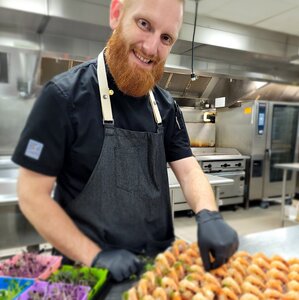

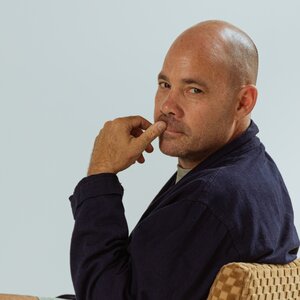

The Ingredients
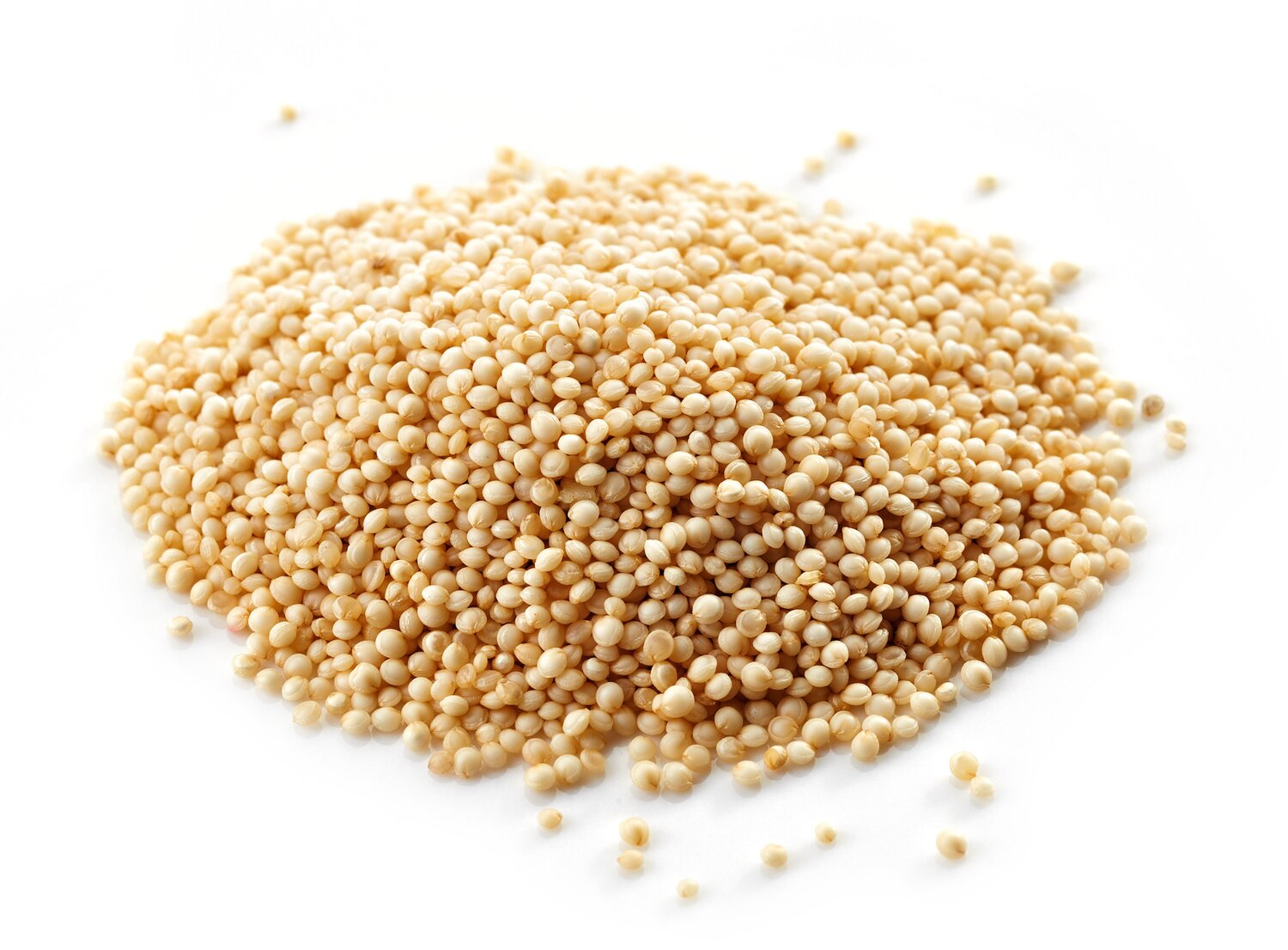
Amaranth
Manihot esculenta
Amaranth greens are a nutrient-rich leafy vegetable widely grown in the tropics, with a history dating back to ancient civilizations. These vibrant greens are often sautéed, steamed, or added to soups and stews, highlighting their mild, earthy flavor. In many cultures, amaranth symbolizes resilience and nourishment, often associated with traditional dishes and agricultural practices. Rich in vitamins and minerals, amaranth greens play an essential role in both nutritional security and sustainable farming practices.
Crop Trust Activities
The Crop Trust co-developed the African Vegetable Biodiversity Rescue Plan and is now supporting its objectives through PDFF, The Power of Diversity: Leveraging African Vegetables and Other Opportunity Crops to Transform Food Systems, a VACS Implementation Initiative. This collaboration with WorldVeg ensures that Africa’s valuable vegetable biodiversity, including that of amaranth, is preserved as a resource for present and future generations. Additionally, amaranth has been a popular ingredient in many past Food Forever Experiences.
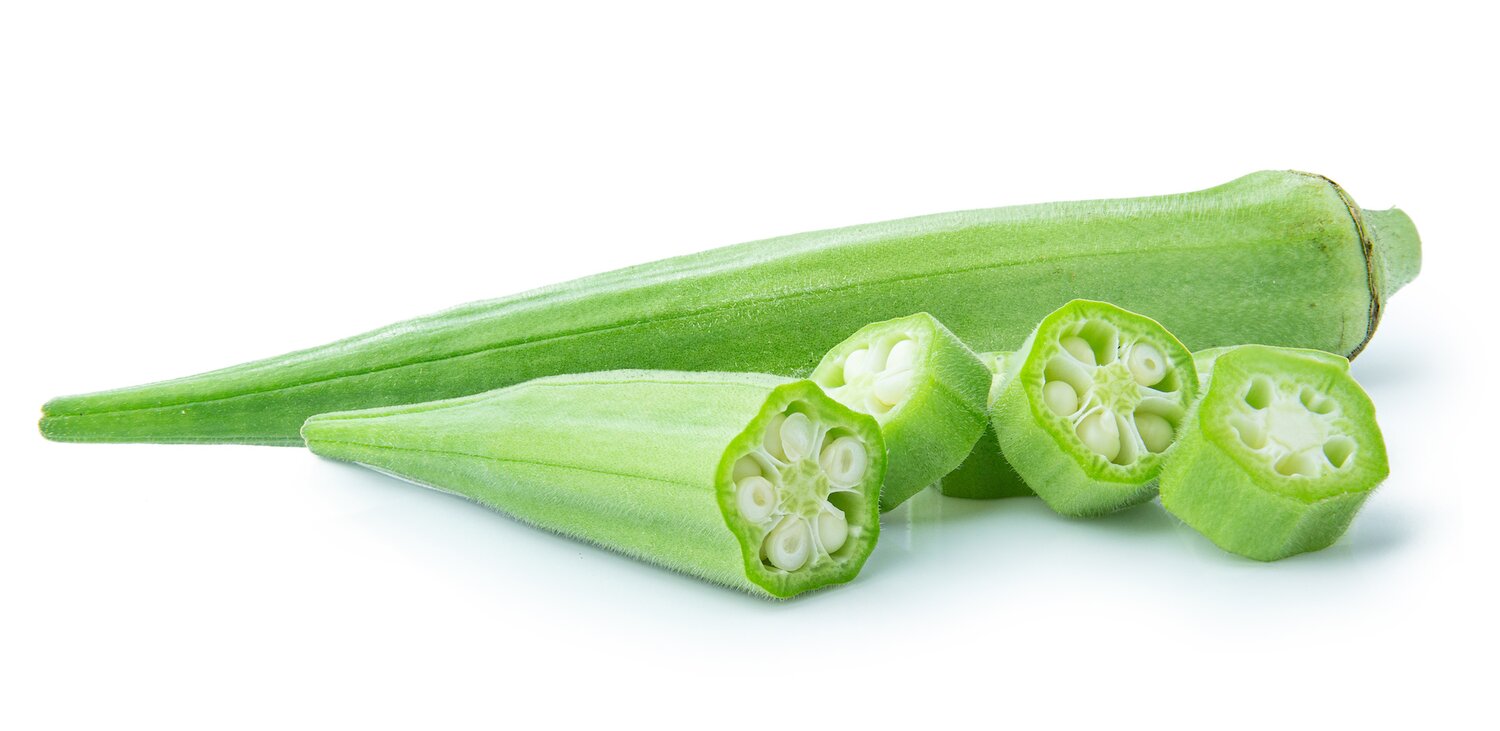
Okra
Abelmoschus esculentus
Okra, believed to have originated in Africa, has a rich history in West African, Middle Eastern, and Southern U.S. cuisines. Known for its unique texture and flavor, it is often cooked in dishes like gumbo, where it acts as a thickening agent. Okra can also be fried, steamed, or pickled. In many cultures, okra symbolizes prosperity and is celebrated in festivals. Its nutritional benefits, including vitamins and fiber, further enhance its significance, making it a beloved ingredient across various culinary traditions.
Crop Trust Activities
The Crop Trust supported National Plant Genetic Resources Laboratory from the Philippines as well as the National Horticultural Research Institute from Nigeria, both partners in the BOLD project, to deposit okra seeds in the Svalbard Global Seed Vault in October 2024.

Fonio
Digitaria exilis
Fonio is an ancient grain cultivated in the Sahel for over 7,000 years, known for its tiny, versatile seeds and important role in West A frican cuisine. It can be boiled, baked, or even brewed into beer. Highly resilient to drought and poor soil, fonio thrives in challenging climates, making it valuable for food security. Recently, it has gained attention as a nutritious, gluten-free alternative to wheat, expanding its reach to a wider audience.
Crop Trust Activities
Fonio is one of the opportunity crops that the Crop Trust and partners are putting back on the menu in Benin and elsewhere, through the BOLDER initiative, supported by the Government of Norway. BOLDER – Building Opportunities for Lesser-known Diversity in Edible Resources – is part of the BOLD project.
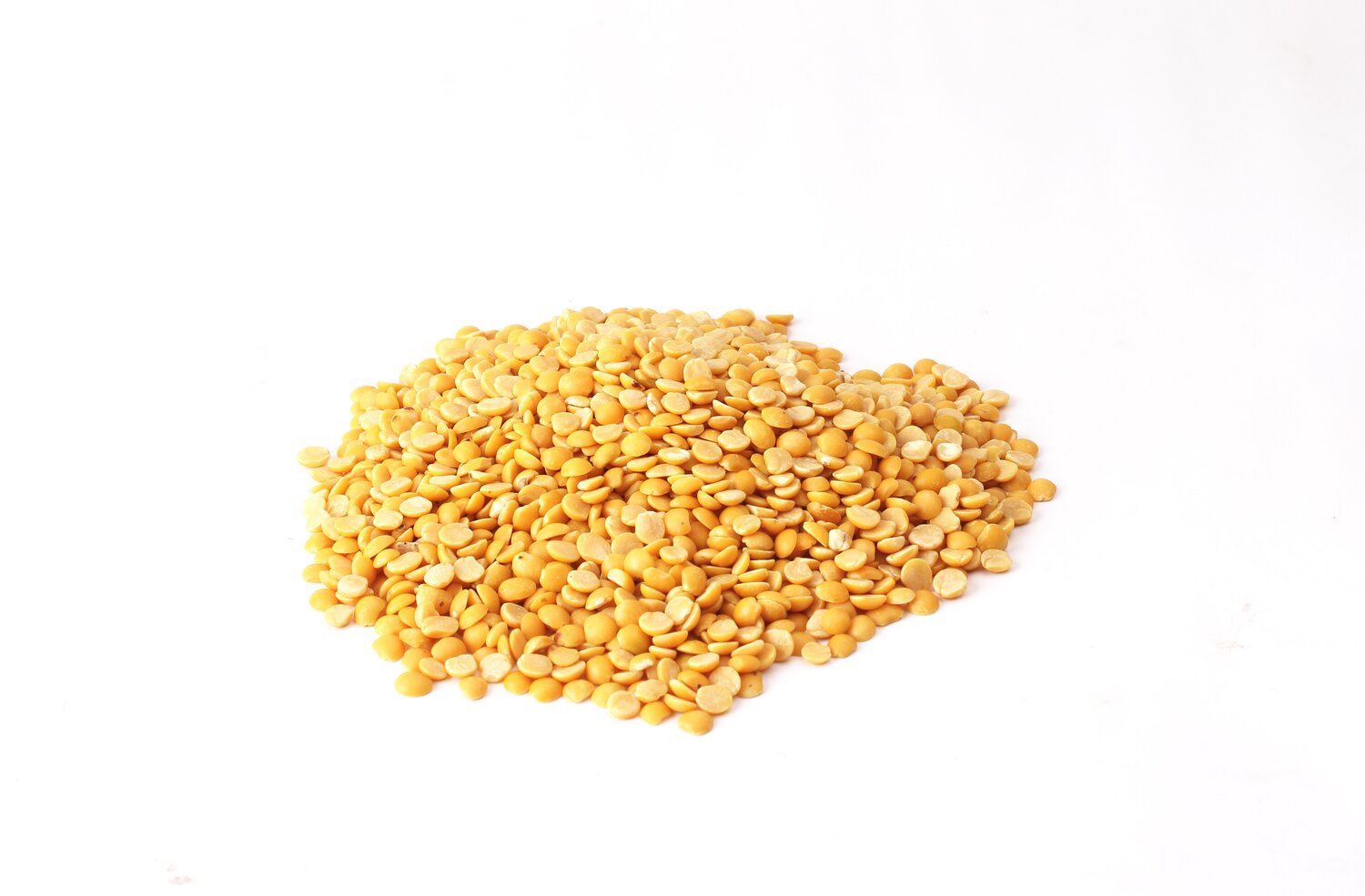
Pigeon pea
Cajanus cajan
Pigeon pea, a grain legume native to Africa and India, has been cultivated for over 3,500 years. A versatile and resilient crop, it thrives in diverse climates. Pigeon peas are commonly cooked in stews, curries, or soups, often paired with rice, especially in Caribbean and Indian cuisines. They hold cultural significance in various communities, symbolizing sustenance and resilience. Rich in protein and fiber, pigeon peas are not only a staple food but also contribute to sustainable agriculture.
Crop Trust Activities
Pigeonpea is a focus crop of the Seeds for Resilience project, which assists the national genebanks of Nigeria, Zambia, Kenya, Ethiopia and Ghana in working toward reaching international standards of operation, ensuring collections are safe – and available for use – over the long term. In Kenya, the Crop Trust works with GeRRI, Kenya’s Genetic Resources Research Institute, to help it conserve and promote the use of pigeonpea. Furthermore, the Crop Trust provides a long-term grant for the conservation of the international collection of chickpea, millets and sorghum at ICRISAT. Beyond that, ICRISAT conducts research on five highly nutritious drought-tolerant crops, including pigeonpea.

The Menu
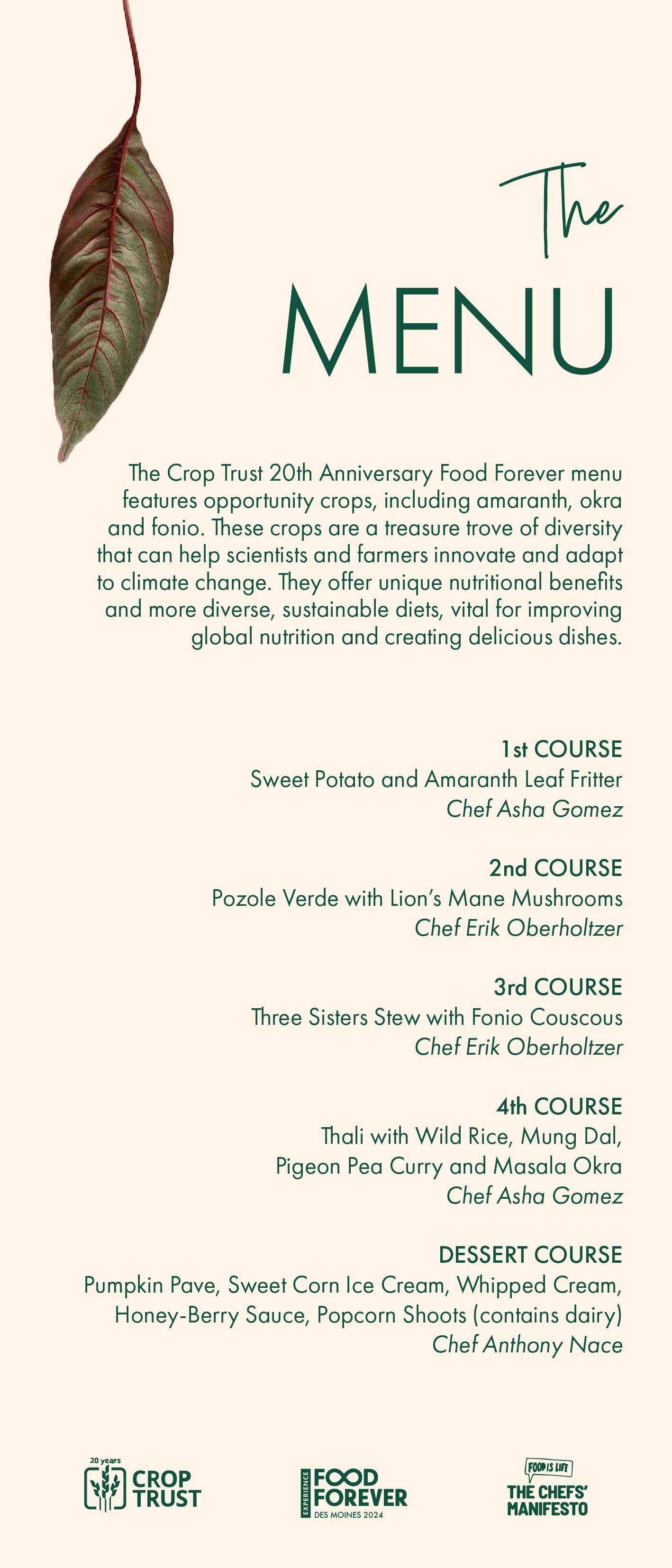
Event photos
Come back soon to peruse the impressions from the event!

